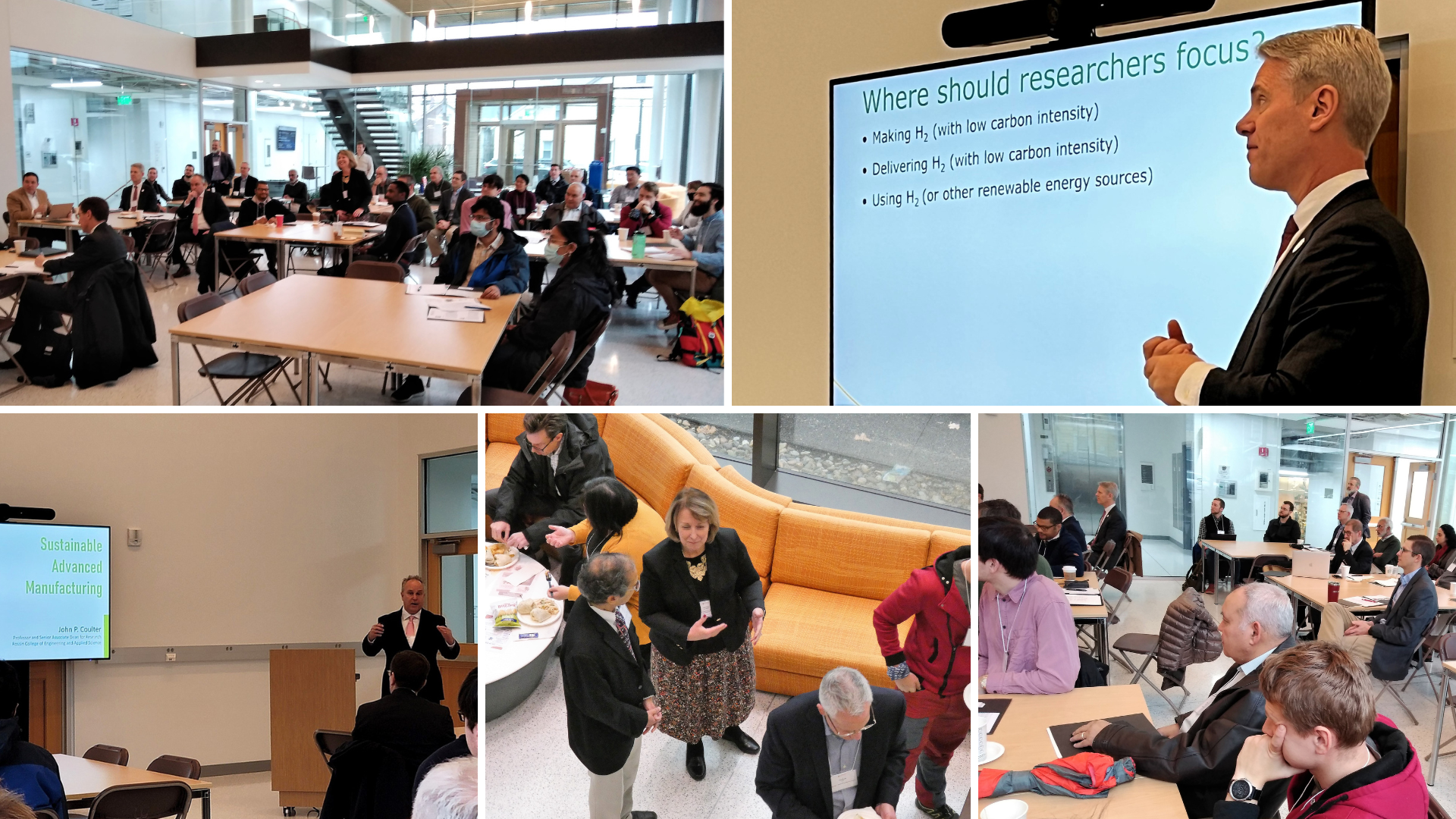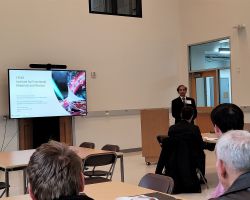
On the heels of the announcement of a new national strategy for advanced manufacturing, Lehigh University researchers recently gathered with representatives from industry and government to exchange ideas and build connections for future collaborations on the cutting-edge of this field.

“Our goal is to build an ecosystem for faculty and industry to collaborate to address the challenges of manufacturing of the future,” said Himanshu Jain, Diamond Distinguished Chair and Professor of Materials Science and Engineering and director of Lehigh’s Institute for Functional Materials and Devices (I-FMD), which hosted the Dec. 6 symposium on advanced manufacturing, an area of critical importance to economic prosperity and national security.
“This event brought together industry leaders from across the manufacturing landscape to share their perspectives on new directions and opportunities in the manufacturing arena, as well as the obstacles they face. And we’re already seeing the seeds of future projects being planted.”
I-FMD, a hub for interdisciplinary research, brings together Lehigh’s expertise in the synthesis, fabrication, processing, and materials characterization as applied to sensors, actuators, and other devices that have critical functionality across mechanical, electronic, photonic, and chemical domains.
Symposium attendees met in Lehigh’s Health Science and Technology building, a state-of-the-art facility specifically designed to encourage the comingling of experts and ideas across STEM disciplines.
Speakers included engineering faculty members Anand Jagota, Lehigh’s vice provost for research, and John Coulter, senior associate dean for research in the P.C. Rossin College of Engineering and Applied Science, who highlighted the university’s recent submission of a concept paper focused on advanced manufacturing in response to the new National Science Foundation Regional Innovation Engines call for proposals.
Jennifer Leinbach, executive director of technology investment at the Pennsylvania Department of Community and Economic Development (DCED), presented opening remarks around “Winning the Future of Manufacturing.” She noted the importance of academia-industry connections in accelerating innovation, including Lehigh’s ongoing efforts.
“I just applaud you so much for the great work that's happening here in your partnership with industry,” she said, “and the impact that you're making I see every day in our communities.”
The symposium’s three keynote speakers illustrated the diversity that exists among manufacturing industries.
Zach Wert, vice president of global operations at OraSure Technologies, recounted the strategic challenges faced by the medtech company during the heights of the COVID-19 pandemic and how those challenges continue to inform OraSure’s decision-making process moving forward.
Dr. Adam Polcyn, vice president of research and development for Vitro Architectural Glass, discussed how glass manufacturing, a resource- and energy-intensive industry, is exploring new ways to evolve in a sustainable fashion.
The final industry presentation, given by Dr. Geoff Achilles, chief engineer at industrial gas supplier Air Products, covered the past, present, and future of the “hydrogen economy.” The U.S. Department of Energy (DOE) recently announced the H2Hubs program—a multibillion dollar effort to develop Regional Clean Hydrogen Hubs “to create networks of hydrogen producers, consumers, and local connective infrastructure to accelerate the use of hydrogen as a clean energy carrier.” The presentation touched on the vast array of R&D opportunities within this space, including where academic institutions such as Lehigh can play a pivotal role in the development of the hydrogen economy.
The second half of the symposium featured research overviews given by 16 Lehigh faculty and staff spanning seven Rossin College departments—bioengineering, chemical and biomolecular engineering, civil and environmental engineering, computer science and engineering, electrical and computer engineering, materials science and engineering, and mechanical engineering and mechanics—as well as Lehigh’s Energy Research Center (ERC).
The event also featured multiple networking sessions that provided industry attendees the opportunity to interact with faculty and graduate students to discuss potential collaborations and hear more about the facilities and expertise available at Lehigh. The symposium concluded with tours of select Lehigh facilities for interested industry attendees.
